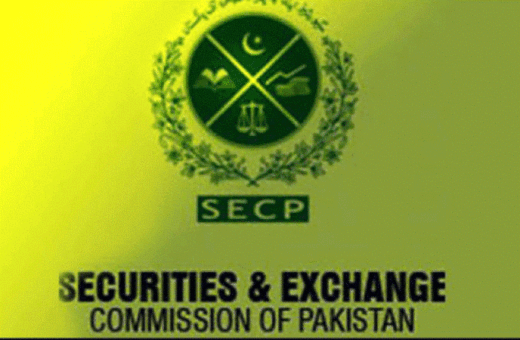Karachi, Pakistan – On Friday, the State Bank of Pakistan (SBP) issued the official exchange rates for December 24, 2021, providing customers with essential information based on the weighted average rates of commercial banks.
(more…)Tag: SBP
-

RDA: SECP exempts banks from obtaining license
ISLAMABAD: The Securities and Exchange Commission of Pakistan (SECP) has exempted banking companies from obtaining licenses to undertake regulated securities activity as security advisors.
A notification issued by the SECP stated that it had granted an exemption to the banking companies licensed and authorized by the State Bank of Pakistan (SBP) to open RDA and perform the function of distributing units of Collective Investment Schemes (CIS) and/or Voluntary Pension Schemes (VPS) of multiple Asset Management Companies (AMCs) to their RDA holders, from the requirement of obtaining a license to undertake regulated securities activity as security advisor.
READ MORE: Overseas Pakistanis deposit $1.56 billion through Roshan Digital Account: SBP
“Provided that such banking companies shall comply with all other requirements prescribed under the applicable regulatory framework,” the SECP said.
The regulator said that the measure has been taken to facilitate overseas Pakistanis to invest in mutual funds and private pension funds managed by AMCs, and comes as part of SECP’s efforts to increase investor-base in Pakistan’s capital markets by enabling investments through RDAs.
READ MORE: PM inaugurates Roshan Digital Accounts for NRPs
However, the permission is only applicable to banks that are eligible to open RDAs. For transfers to accounts other than RDAs, the license requirement is still applicable under Securities & Future Advisor Regulations, 2017.
It is expected that this initiative will broaden the range of available investment avenues for Overseas Pakistanis and increase flow of foreign remittances to the country.
READ MORE: SECP warns against investing in fraudulent schemes
-

Pakistan’s forex reserves decline by $395 million in week
KARACHI: Pakistan’s foreign exchange reserves have declined by $395 million to $24.633 billion by the week ended December 17, 2021, the State Bank of Pakistan (SBP) said on Thursday.
READ MORE: SBP sets limits for sale of foreign exchange to individuals
The foreign exchange reserves of the country were $25.028 billion a week ago.
The official foreign exchange reserves of the SBP were reduced by $414 million to $18.153 billion by the week ended December 17, 2021, as compared with $18.568 billion a week ago.
READ MORE: State Bank reduces retention period for foreign exchange
The central bank said that its reserves had fallen mainly due to external debt repayment.
The foreign exchange reserves held by commercial banks however increased by $19 million to $6.479 billion by the week ended December 17, 2021, as compared with $6,460 billion a week ago.
-

SBP issues KIBOR rates on December 23, 2021
KARACHI: State Bank of Pakistan (SBP) on Thursday issued the Karachi Interbank Offered Rates (KIBOR) as of December 23, 2021.
Following are the latest KIBOR rates:
Tenor BID OFFER 1 – Week 9.67 10.17 2 – Week 9.76 10.26 1 – Month 9.84 10.34 3 – Month 10.16 10.41 6 – Month 10.92 11.17 9 – Month 10.96 11.46 1 – Year 11.16 11.66 -

Customers’ exchange rates on December 23, 2021
Karachi, Pakistan – On Thursday, the State Bank of Pakistan (SBP) released the official exchange rates for December 23, 2021, offering customers vital information based on the weighted average rates of commercial banks.
(more…) -

SBP issues KIBOR rates on December 22, 2021
KARACHI, December 22, 2021 – The State Bank of Pakistan (SBP) has announced the latest Karachi Interbank Offered Rates (KIBOR) for various tenors, effective from December 22, 2021.
(more…) -

Bank holiday on December 25 announced
KARACHI: The State Bank of Pakistan (SBP) on Wednesday announce bank holiday on occasion of Quaid-e-Azam Day and Christmas.
The SBP said that it will remain closed on December 25, 2021 (Saturday) being public holiday on the occasions of Quaid-e-Azam Day and Christmas, as declared by the Government of Pakistan.
The central bank communicated the message to presidents and chief executives of all banks, development financial institutions and microfinance banks.
-

Customers’ exchange rates on December 22, 2021
Karachi, Pakistan – On Wednesday, the State Bank of Pakistan (SBP) unveiled the official exchange rates for December 22, 2021, providing customers with essential information based on the weighted average rates of commercial banks.
(more…) -

SBP directs banks to accept bearer prize bonds
KARACHI: State Bank of Pakistan (SBP) on Tuesday directed commercial banks to accept bearer prize bonds of high denomination till March 31, 2021.
Through a circular, the SBP informed that Circular No. 1 dated April 30, 2021, and Circular No. 3 dated September 29, 2021, were issued wherein the last date for encashment/conversion/redemption of captioned denominations of National Prize Bonds (NPBs) was communicated as December 31, 2021.
READ MORE: Prize bond (bearer) holders given 3 months to document
The Finance Division, Government of Pakistan has extended the last date for encashment/replacement/conversion of Rs. 40,000/-, Rs. 25,000/-, Rs. 15,000/- & Rs. 7,500/- denomination National Prize Bonds (bearer) up to March 31, 2022, vide Notification Nos. F.16(3)GS-I/2014-1869, 1870, 1871 & 1872 dated December 16, 2021.
READ MORE: History of Prize Bonds in Pakistan
Accordingly, the SBP directed all branches shall be advised to accept requests for encashment/conversion/redemption of cited denominations from the general public till March 31, 2022.
Further, the banks shall submit branch/region-wise consolidated data of cited denomination NPBs held by them on the last date i.e. March 31, 2022, latest by April 1, 2022, as per the instructions stipulated in the aforementioned CMD Circulars.
-

SBP issues KIBOR rates on December 21, 2021
KARACHI: State Bank of Pakistan (SBP) on Tuesday issued the Karachi Interbank Offered Rates (KIBOR) as of December 21, 2021.
Following are the latest KIBOR rates:
Tenor BID OFFER 1 – Week 9.60 10.10 2 – Week 9.72 10.22 1 – Month 9.86 10.36 3 – Month 10.20 10.45 6 – Month 10.95 11.20 9 – Month 11.06 11.56 1 – Year 11.17 11.67